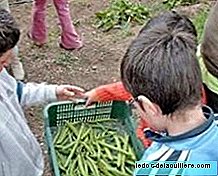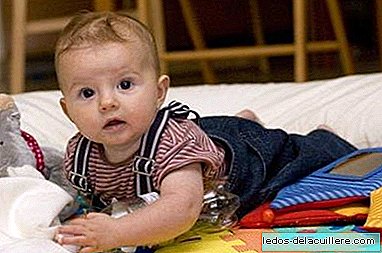
In the sixties, psychologist Walter Mischel conducted a study with four-year-old children with the intention of demonstrating that the level of impulse control at that age could be premonitory of the character and way of being of people in adulthood.
To carry out his research, he had an adult tell each child the following: "Now I must leave and I will be back in about twenty minutes. If you wish you can take a treat but, if you wait for me to come back, I will give you two."
It is clear that for a four-year-old child, such a situation is a true odyssey. A fight against their wishes, against their self-control. In fact I remember seeing a documentary in which they put children in the same situation and it was very curious to see them cover their faces, eyes, lie on the floor, sing and a thousand things to avoid thinking about that jelly bean that was waiting for them at the table. It was also curious to see other children who simply took the jelly bean and ate it (better bird in hand ...).
A few years later, when these children reached teenage age, they were reassessed to seek a direct association between their ability to control impulses and the type of person they had become. According to Mischel, those who at four years resisted temptation and waited to have two goodies they were socially more competent, more enterprising and more capable of facing the frustrations of life. They were not baffled or left unanswered by the pressure. They did not run from risks but faced them, were self-confident, honest and responsible.
Instead, those who took the candy were generally more problematic. They were teenagers more fearful of social contacts, more stubborn, more hesitant, more disturbed by frustrations, more inclined to consider themselves "bad" or unworthy, to fall back into regression or to be paralyzed in tense situations, to be distrustful, resentful , jealous and envious, to react disproportionately and engage in all kinds of discussions and fights.
Thus, it seems that those who have little abilities already have the capacity to delay gratification are the people most capable of carrying out personal projects such as making a career, dieting, quitting smoking and ultimately finishing those things that begin.
In addition to assessing the academic results of the adolescents, it was observed that those children who waited at four years of age for those twenty minutes obtained better academic results than those who had been carried away by their impulses.
And here is when you ask yourself: "Would I have waited?" or "Would my son wait?". In the case of my son, I don't know, he is missing just over a year for the four. In my case, I don't know what to think. Many things in my current behavior tell me that I would be one of catching the treat, many others tell me that I would wait. The best thing is that I will never know. Or maybe that is the worst ...












